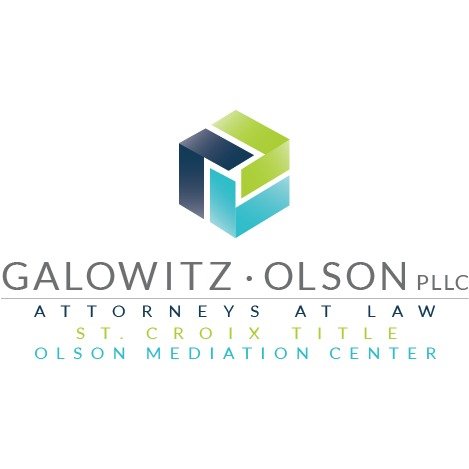Best Commercial Real Estate Lawyers in Minnesota
Share your needs with us, get contacted by law firms.
Free. Takes 2 min.
Free Guide to Hiring a Real Estate Lawyer
Or refine your search by selecting a city:
List of the best lawyers in Minnesota, United States
About Commercial Real Estate Law in Minnesota, United States
Commercial real estate law in Minnesota covers the legal aspects of buying, selling, leasing, developing, and managing properties used for business purposes. This includes office buildings, retail centers, warehouses, industrial spaces, and multi-family apartment complexes. The practice area encompasses a wide range of issues, such as contract negotiations, financing, zoning, permitting, landlord-tenant relations, and environmental compliance. Understanding these unique rules and regulations is critical for individuals and businesses involved in commercial property transactions in the state.
Why You May Need a Lawyer
There are several situations where you might require the assistance of a legal professional in commercial real estate:
- You are buying or selling commercial property and need help reviewing or preparing contracts.
- You want to lease commercial space, either as a landlord or tenant, and require assistance negotiating lease terms and obligations.
- You encounter disputes over zoning, property boundaries, or easements.
- You are involved in developing property and want to ensure compliance with local regulations and permitting requirements.
- You are facing complex financing arrangements, such as securing commercial mortgages or dealing with foreclosure issues.
- You need to resolve disagreements that arise during the ownership, sale, or management of commercial real estate.
- You are concerned about environmental liabilities associated with commercial properties, such as hazardous waste or remediation requirements.
Legal advice ensures your interests are protected, reduces potential risks, and helps you navigate the complex framework of Minnesota commercial real estate law.
Local Laws Overview
Several laws and regulations impact commercial real estate in Minnesota. Some of the most important aspects include:
- Statewide Statutes: Minnesota Statutes Chapter 500 and Chapter 513 deal with property conveyance, landlord and tenant rules, and contractual requirements for commercial transactions.
- Disclosure Requirements: Minnesota law often requires sellers to disclose known material facts that could affect the value or desirability of a property.
- Zoning and Land Use: Local zoning ordinances dictate how a particular piece of real estate may be used, such as for industrial, retail, office, or mixed-use purposes. Zoning changes and variances generally must be approved by local authorities.
- Leasing Laws: While many aspects of commercial leases are negotiable, they are also subject to certain statutory requirements, particularly concerning security deposits and unlawful detainers (evictions).
- Environmental Regulations: Both state and federal environmental rules can impact the development or operation of commercial properties. These may relate to hazardous materials, wetlands, and stormwater management among other concerns.
- Taxation: Commercial properties in Minnesota are subject to property tax assessments that may differ from residential rates. There may also be tax incentives available for certain types of development or rehabilitation projects.
- Brokerage and Licensing: Any individual or business representing others in the purchase, sale, leasing, or management of commercial real estate must have the appropriate Minnesota real estate broker or salesperson license.
Frequently Asked Questions
What is considered commercial real estate in Minnesota?
Commercial real estate includes any property used for business purposes, such as office buildings, retail spaces, warehouses, industrial facilities, and multi-family apartment buildings with more than four units.
How are commercial real estate transactions different from residential transactions?
Commercial transactions usually involve more complex contracts, larger financial sums, different disclosure requirements, and a focus on negotiations between businesses rather than individual consumers.
Do I always need a lawyer to buy or sell commercial property in Minnesota?
While Minnesota law does not require a lawyer for every commercial real estate transaction, having legal representation is highly recommended to protect your interests and manage risk, especially in complex deals.
Are there standard commercial lease agreements in Minnesota?
There is no official standard commercial lease form in Minnesota. Lease agreements are typically negotiated between parties and can be tailored to the specific property and business needs.
What disclosures are sellers required to provide in Minnesota commercial real estate sales?
Sellers must typically disclose any known material defects or issues that could affect the value or usability of the property. Additional disclosures may apply depending on the nature of the property and local ordinances.
What if there is an environmental problem on a commercial property?
Owners and sometimes tenants can be held responsible for environmental hazards, even if they did not cause them. It is wise to conduct environmental assessments before purchasing or leasing commercial property.
How can a zoning issue affect my commercial real estate project?
Zoning laws regulate what activities can take place on your property. If your intended use does not align with current zoning, you may need to seek a variance or rezoning approval from the local municipality.
How are commercial property taxes assessed in Minnesota?
The value of commercial property for tax purposes is determined by local county assessors. Rates and assessments may vary based on location, property type, and use.
What happens if there is a dispute with a commercial tenant or landlord?
Disputes are usually resolved through negotiation, mediation, or the courts. Minnesota has specific court procedures for commercial lease disputes, including evictions.
What should I look for in a commercial real estate lawyer?
Seek a lawyer with experience in Minnesota commercial real estate law, a track record of handling similar transactions or disputes, and strong communication skills to explain complex legal matters clearly.
Additional Resources
Individuals and businesses seeking more information on commercial real estate in Minnesota may find the following resources helpful:
- Minnesota Department of Commerce - Real Estate Licensing Division
- Minnesota State Bar Association - Real Property Section
- City and County Planning and Zoning Offices
- Local Chambers of Commerce
- Real estate trade associations, such as the Minnesota Commercial Association of Real Estate/Realtors (MNCAR)
- Environmental Quality Board of Minnesota for land use and development regulations
Next Steps
If you need legal assistance with a commercial real estate matter in Minnesota, consider these steps:
- Document your situation in detail, including all relevant contracts, correspondence, and property records.
- Research and select a qualified Minnesota commercial real estate attorney who understands your specific needs.
- Schedule an initial consultation to discuss your concerns and possible legal strategies.
- Be prepared to provide details about your property, transaction, finances, and any parties involved.
- Ask questions until you understand the legal process and your available options.
- Follow your attorney’s advice and keep thorough records throughout the process.
A knowledgeable legal professional can help you avoid costly pitfalls, resolve disputes, and achieve your commercial real estate goals with confidence in Minnesota.
Lawzana helps you find the best lawyers and law firms in Minnesota through a curated and pre-screened list of qualified legal professionals. Our platform offers rankings and detailed profiles of attorneys and law firms, allowing you to compare based on practice areas, including Commercial Real Estate, experience, and client feedback.
Each profile includes a description of the firm's areas of practice, client reviews, team members and partners, year of establishment, spoken languages, office locations, contact information, social media presence, and any published articles or resources. Most firms on our platform speak English and are experienced in both local and international legal matters.
Get a quote from top-rated law firms in Minnesota, United States — quickly, securely, and without unnecessary hassle.
Disclaimer:
The information provided on this page is for general informational purposes only and does not constitute legal advice. While we strive to ensure the accuracy and relevance of the content, legal information may change over time, and interpretations of the law can vary. You should always consult with a qualified legal professional for advice specific to your situation.
We disclaim all liability for actions taken or not taken based on the content of this page. If you believe any information is incorrect or outdated, please contact us, and we will review and update it where appropriate.
Browse commercial real estate law firms by city in Minnesota
Refine your search by selecting a city.









